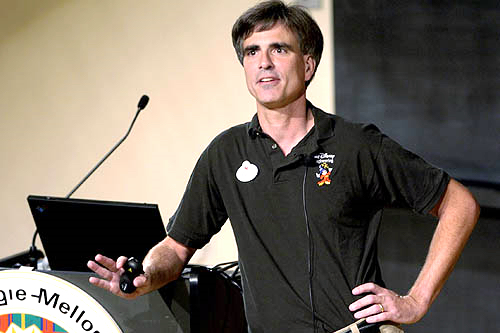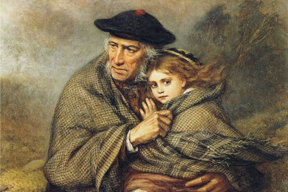As She Journeys Down Her Yellow Brick Road
Last week, I wrote an essay for my granddaughter, Ti Ti. She turned 17. I’ve written scores of essays for my three granddaughters unrelated to birthdays. I’ll pen an article for any reason, but the primary reason is that I love them. However, I gave Ti Ti ten ideas on her birthday to help her as she journeys down her yellow brick road of life.
One suggestion is to continue writing poetry. Four years ago, Ti Ti wrote a poem about our relationship. A year and a half ago, Ti Ti jotted down several short poems during our family tour together.
While I didn’t mention it in my article, all the great writers have personal suggestions about writing. Some writers, like Earnest Hemmingway, do their writing early in the morning. Some have a required number of words, like Sarah Waters. “My minimum is 1,000 words a day… Those 1,000 words might well be rubbish- they often are. But then, it is always easier to return to rubbish words at a later date and make them better.” Also, E.B. White wrote, “A writer who waits for ideal conditions under which to work will die without putting a word on paper.”
Therefore, I want Ti Ti to get into a routine about writing in which she is comfortable. The schedule or the number of words is merely a mechanical device to routinize the writing process.
Ti Ti has heard me talk about having to memorize poetry or prose while in high school. I hated that requirement. It is equally true that after graduating from high school, many of the lines that I memorized for Mrs. Davis’ English literature and American literature classes, I still remember and use. In my birthday essay to Ti Ti, I mentioned Dylan Thomas’ poem, Do Not Go Gentle into that Good Night.

Do Not Go Gentle into that Good Night
Even after six decades, I can still recite the first stanza. It is also my mantra.
Do not go gentle into that good night,
Old age should burn and rave at close of day;
Rage, rage against the dying of the light.
If you want to know what is essential to me in life, you will see it in some of the lines of poetry or prose that I memorized decades ago. Here are some examples.
Alan Seeger wrote I Have a Rendezvous with Death. Seeger volunteered for the French Foreign Legion because America had yet entered WWI. Ironically, he was killed on July 4, 1916.

I have a rendezvous with death
This is the first stanza of his poetic harbinger of his death.
I have a rendezvous with death
At some disputed barricade,
When Spring comes back with rustling shade
And apple-blossoms fill the air-
I have a rendezvous with death
When Spring brings back blue days and fair
My takeaway from his poem was that he was a dreamer who wanted to help the Western allies during the war. He seemed to know that he would be killed but continued on despite his foreboding feelings. Doing what is right regardless of the cost is a necessary mindset. If you aren’t willing to pay that cost, you talk the talk but won’t walk the walk. I’m not a coward, but America is filled with cowards who will lie to save their job in Washington. Congressman Clyde is one of many in the House and Senate. Most of the Republicans need to read Shakespeare’s play, Julius Caesar.
“Cowards die many times before their deaths,
The valiant never taste of death but once.”
Edgar Allan Poe was one of my favorite poets. I liked the cadence of his poetry, like The Raven and Anabel Lee. However, Eldorado resonated with me

Actually, I memorized the entire poem. It became a mandate in my life if I want to find my Eldorado.
Gaily bedight,
A gallant knight,
In sunshine and in shadow,
Had journeyed long,
Singing a song,
In search of Eldorado.
But he grew old—
This knight so bold—
And o’er his heart a shadow—
Fell as he found
No spot of ground
That looked like Eldorado.
And, as his strength
Failed him at length,
He met a pilgrim shadow—
‘Shadow,’ said he,
‘Where can it be—
This land of Eldorado?’
‘Over the Mountains
Of the Moon,
Down the Valley of the Shadow,
Ride, boldly ride,’
The shade replied,—
'If you seek for Eldorado!'
In many ways, Seeger and Poe’s poems address the quest and the cost of the search.
Interestingly, James Russell Lowell’s poem, The Vision of Sir Launfal, addresses the drive to find the Holy Grail. Launfal begins his journey to find his Eldorado filled with determination…a self-righteous and holier-than-thou manner.

Sir Launfal flashed forth in his unscarred mail....
However, he finally sees the light.
He parted in twain his single crust,
He broke the ice on the streamlet’s brink,
And gave the leper to eat and drink;
‘T was a mouldy crust of coarse brown bread,
‘T was water out of a wooden bowl,–
Yet with fine wheaten bread was the leper fed,
And ’t was red wine he drank with his thirsty soul.
As Sir Launfal mused with a downcast face,
A light shone round about the place;
The leper no longer crouched at his side…
“Lo, it is I, be not afraid!
In many climes, without avail,
Thou had spent thy life for the Holy Grail;
Behold, it is here, – this cup which thou
Didst fill at the streamlet for me but now;
This crust is my body broken for thee,
This water His blood that died on the tree;
The Holy Supper is kept, indeed,
In whatso we share with another’s need,–
Not that which we give, but what we share,–
For the gift without the giver is bare;
Who bestows himself with his alms feeds three,–
Himself, his hungering neighbor, and me.”
William Faulkner received the Nobel Prize for Literature in 1949.

This is the last paragraph of his acceptance speech.
I decline to accept the end of man. It is easy enough to say that man is immortal simply because he will endure: that when the last ding-dong of doom has clanged and faded from the last worthless rock hanging tideless in the last red and dying evening, that even then there will still be one more sound: that of his puny inexhaustible voice, still talking. I refuse to accept this. I believe that man will not merely endure: he will prevail. He is immortal, not because he alone among creatures has an inexhaustible voice, but because he has a soul, a spirit capable of compassion and sacrifice and endurance. The poet’s, the writer’s, duty is to write about these things. It is his privilege to help man endure by lifting his heart, by reminding him of the courage and honor and hope and pride and compassion and pity and sacrifice which have been the glory of his past. The poet’s voice need not merely be the record of man, it can be one of the props, the pillars to help him endure and prevail.
It was hard for me to memorize his closing words. Six decades later, about all that I can still recite…poorly is “the last ding-dong of doom has clanged and faded from the last worthless rock hanging tideless in the last red and dying evening, that even then there will still be one more sound: that of his puny inexhaustible voice, still talking.” Regardless, I got his message. Write about important causes and concerns.
The Bridge Builder was in my baby book. I can recite close to verbatim this poem even after six decades have passed since high school. Talk about a mantra.

“He, too, must cross in the twilight dim; Good friend, I am building this bridge for him.”
The Bridge Builder
by Will Allen Dromgoole
An old man going a lone highway
Came at the evening, cold and gray,
To a chasm, vast, and deep and wide,
Through which was flowing a sullen tide.
The old man crossed in the twilight dim;
The sullen stream had no fear for him;
But he turned, when safe on the other side,
And built a bridge to span the tide.
“Old man,” said a fellow pilgrim, near,
“You are wasting strength with building here;
Your journey will end with the ending day;
You never again will pass this way;
You’ve crossed the chasm, deep and wide-
Why build you this bridge at the evening tide?”
The builder lifted his old gray head:
“Good friend, in the path I have come,” he said,
“There followeth after me today,
A youth, whose feet must pass this way.
This chasm, that has been naught to me,
To that fair-haired youth may a pitfall be.
He, too, must cross in the twilight dim;
Good friend, I am building this bridge for him.”
George Eliot, a pseudonym for Mary Ann Evans, wrote a novella entitled Silas Marner. Eliot published it in 1861, precisely a century before I stood in front of Mrs. Davis to recite this passage from Silas Marner. This is also one that I still can recite almost perfectly.
In old days there were angels who came and took men by the hand and led them away from the city of destruction. We see no white-winged angels now. But yet men are led away from threatening destruction: a hand is put into theirs, which leads them forth gently towards a calm and bright land, so that they look no more backward; and the hand may be a little child’s.

Eppie wandered into Silas’ life, and the miser’s life was transformed into a caring provider. Silas’ new life was due to the hand of a little child.
The Man in the Arena is a part of a very long speech delivered by Theodore Roosevelt at the Sorbonne in Paris in 1910. The following is what historians call the Man in the Arena paragraph.
It is not the critic who counts; not the man who points out how the strong man stumbles, or where the doer of deeds could have done them better. The credit belongs to the man who is actually in the arena, whose face is marred by dust and sweat and blood; who strives valiantly; who errs, who comes short again and again, because there is no effort without error and shortcoming; but who does actually strive to do the deeds; who knows great enthusiasms, the great devotions; who spends himself in a worthy cause; who at the best knows in the end the triumph of high achievement, and who at the worst, if he fails, at least fails while daring greatly, so that his place shall never be with those cold and timid souls who neither know victory nor defeat.

I could go on and on with more examples of poetry or prose. Nevertheless, Ti Ti, or anyone that knows me, can see how those writers influenced me. So, Ti Ti, I have an assignment for you, which is in two parts. The first part is to email me three poems or prose from any writer that you admire. It can be a man or woman from your country or any country. Just email the writer and his or her poem.
Before I read your three poems, I will tell you that they will reflect your values, concerns, and interests. Essentially your favorite poems are your fingerprint. They represent you.
This is the second part of your assignment. Boy, I sound like some old professor. When you meet a person in college, in your community, or in your life in general, ask them what poem or prose they like the most. Have that person tells you why they like it. It will reveal to you who they really are.
I hope this essay helps you as you journey down your yellow brick road of life.

Follow @mountain_and_me















